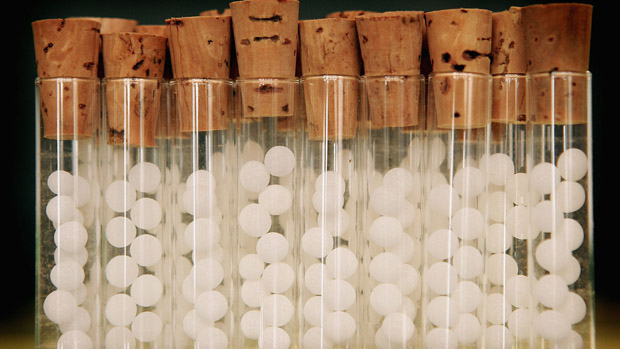Homeopathic treatments 'no more effective than placebos'
Australian review of hundreds of research papers finds no reliable evidence to support homeopathy

A free daily email with the biggest news stories of the day – and the best features from TheWeek.com
You are now subscribed
Your newsletter sign-up was successful
There is no "good quality evidence" to show that homeopathic remedies work any better than a placebo, a review by the Australian government's medical research body has found.
The National Health and Medical Research Council (NHMRC) said it had found no reliable proof that homeopathy was effective at treating any health condition, be it headaches and asthma or anxiety and depression.
What is homeopathy?
The Week
Escape your echo chamber. Get the facts behind the news, plus analysis from multiple perspectives.

Sign up for The Week's Free Newsletters
From our morning news briefing to a weekly Good News Newsletter, get the best of The Week delivered directly to your inbox.
From our morning news briefing to a weekly Good News Newsletter, get the best of The Week delivered directly to your inbox.
It is an alternative treatment based on a series of ideas from an 18th-century German doctor called Samuel Hahnemann. It uses a small amount of the substance causing the patient's symptoms and dilutes it many times in order to treat the condition.
How was the NHMRC review carried out?
The council assessed the findings of more than 1,800 research papers and found only 225 that met the criteria for its examination of the effectiveness of homeopathy. "Although some studies did report that homeopathy was effective, the quality of those studies was assessed as being small and/or of poor quality," it said. These had too few participants or were too poorly conducted to be reliable. The evidence was also reviewed by an independent company to prevent bias.
A UK House of Commons Science and Technology Committee report also reached a similar conclusion in 2010: homeopathic remedies perform no better than placebos. Nevertheless, a 2013 survey of doctors found that 97 per cent had prescribed an "impure placebo" at least once in their career, with researchers suggesting that placebos have a useful place in medicine.
A free daily email with the biggest news stories of the day – and the best features from TheWeek.com
Is homeopathy dangerous?
The NHS says homeopathic remedies are "generally safe" with risks of serious side-effects thought to be small. However, it warns that some remedies "may contain substances that are not safe, or that interfere with the action of other medicines". Another concern is patients choosing homeopathy over medical treatments prescribed by a doctor. "People who choose homeopathy may put their health at risk if they reject or delay treatments for which there is good evidence of safety and effectiveness," the NHMRC report warned.
What do the homeopaths say?
A spokeswoman for the Australian Homeopathic Association told ABC News that the NHMRC had already "made up its mind" about homeopathy before the results and said the research was restricted by a "very, very narrow" format. She claimed studies supporting homeopathy were ignored because they were not so easily comparable to the other research used in the review. "Homeopathy is a holistic form," she said, "meaning we are taking into account the psychosocial, the physical, the emotional state of the person in assessing what they might need medicinally".
What next?
The NHMRC hopes that pharmacists will reconsider stocking homeopathic treatments and that private health insurers will stop offering rebates on them. It has acknowledged that some people might think the report is a "conspiracy of the establishment" but said it hoped there will be a "lot of reasonable people out there who will reconsider selling, using or subsidising these substances".
-
 Sepsis ‘breakthrough’: the world’s first targeted treatment?
Sepsis ‘breakthrough’: the world’s first targeted treatment?The Explainer New drug could reverse effects of sepsis, rather than trying to treat infection with antibiotics
-
 James Van Der Beek obituary: fresh-faced Dawson’s Creek star
James Van Der Beek obituary: fresh-faced Dawson’s Creek starIn The Spotlight Van Der Beek fronted one of the most successful teen dramas of the 90s – but his Dawson fame proved a double-edged sword
-
 Is Andrew’s arrest the end for the monarchy?
Is Andrew’s arrest the end for the monarchy?Today's Big Question The King has distanced the Royal Family from his disgraced brother but a ‘fit of revolutionary disgust’ could still wipe them out